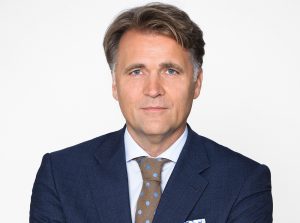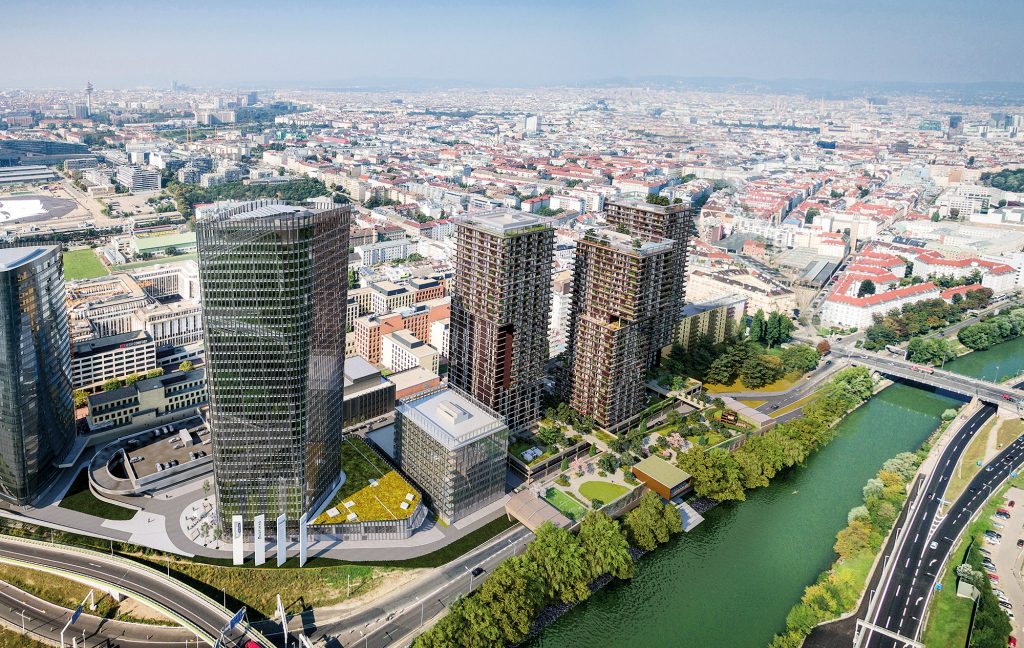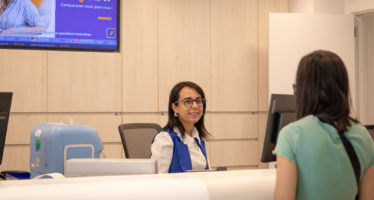Kommunalkredit: The Importance of Sustainable Infrastructure Increasingly Vital During These Challenging Times

CEO: Bernd Fislage. Photo: © Petra Spiola
In times like these, the importance of sustainable investment in infrastructure is growing.
The demands on infrastructure are constantly changing, from economic and socio-political perspectives. Infrastructure must adapt to these requirements. Public services are in particular focus due to the demand for high-performance digital communication channels for remote working, distance learning and video conferencing. The associated increase in demand for electricity must also be factored-in, and the need for uninterrupted medical care has put the spotlight on the social infrastructure.
Kommunalkredit is proud to be more than a bank. It is a point of contact for the full range of topics related to infrastructure, and as a vehicle for investments in an area of vital importance for society. CEO Bernd Fislage believes this is the time to face up to global social and economic challenges. “If we are to emerge from this crisis stronger than before, we must assume great socio-economic responsibility,” he says. “Not only with regard to the current pandemic and its consequences, but also with a view to the EU Green Deal and the respective national climate plans.
“Europe has the chance to position itself as a leader in green and sustainable projects. Entrepreneurial foresight and decision-making power are needed to drive forward far-reaching, sustainable and innovative investments in infrastructure.
“How should these projects be implemented? In the best case, quickly, cost-effectively, and with a future-orientated approach. Since the financial scope of the public sector is limited, co-operation between the public and private sectors must be intensified. The economic and financial systems have a key role to play.”
Kommunalkredit assists the construction and operation of infrastructure facilities by balancing the financing needs of project sponsors and developers with the investors looking for sustainable investment opportunities. Main investment segments are energy and environment, communication and digitalisation, transport, social infrastructure and natural resources.
Infrastructure as an Asset Class with Kommunalkredit
As an alternative capital investment, infrastructure investments are largely crisis-proof, with stable debt returns, low volatility compared to other asset classes and low default rates.
In the current low-interest environment, classic investments without high volatility provide hardly any returns. The construction, maintenance and modernisation of infrastructure and energy projects in the areas of utilities, telecommunications, transport and social infrastructure are high on the agenda.
This is true for industrialised and developing countries as a result of the current health crisis and its consequences for the real economy. Great attention is being paid to sustainability and ESG/SDG criteria in infrastructure investments. In the long run, it is the only way to sustainably shape the future over generations.
The bank is financing ecological energy supply for five high-rise building projects on the Vienna Danube Canal. An innovative aspect is that water extracted from the canal is used for heating and cooling systems. “It’s a showcase project for smart, sustainable energy solutions”, says Fislage.

Soravia Austro Control Tower. © 2020 ZOOMVP
Local and Global Infrastructure Trends
The bank focuses on sustainable infrastructure projects that support key challenges such as economic growth, strengthening regions, job creation and, above all, climate protection measures. Kommunalkredit is the first financial services provider in Austria to be admitted to the European Clean Hydrogen Alliance established by the EU Commission in 2020.
“We believe in hydrogen as a climate-neutral energy carrier with enormous potential,” says Fislage, “and we place great emphasis on innovation and sustainability. Which is why it was a logical step for us to join the European Clean Hydrogen Alliance, because the economic and financial system is now called upon to promote economic and sustainable projects that contribute to achieving #mission2030 (the Austrian climate and energy strategy), the Green Deal and climate neutrality as well as committing even further to the 17 SDGs set by the United Nations.”
Bernd Fislage has extensive international experience in capital-market, institutional and bank financing of infrastructure, energy and transport projects. His career includes leading roles in regional and global management with Deutsche Bank. He was responsible for Deutsche Bank’s global asset finance and structured finance business (ABS, CRE, illiquid trading) in Germany, Austria and Switzerland.
He has previously worked for NatWest Markets and BHF Bank. Bernd Fislage has been a member of the executive board of Kommunalkredit Austria AG since February 2017, and CEO since September 2018.
You may have an interest in also reading…
SWAN’s Way in Mauritius: Historic Insurance Provider Delivers Modern Day Financial Services
From humble beginnings, SWAN has matured to become a leading non-banking financial services provider in Mauritius. Over its 165-year history,
BIAT: Strengthening Market Leadership Through Innovation, Digitalisation, and Responsible Governance
BIAT continues to assert its dominance in the Tunisian financial market, reinforcing its resilience with positive results. These achievements reflect
Climate change denier, Mining Champion, Sworn Enemy of Green Policies — Gina Rinehart’s Lonely, Determined Path
The Thatcher fan and chair of Hancock Prospecting has little sympathy for the Left, green policies, or the Channel Nine


















































































